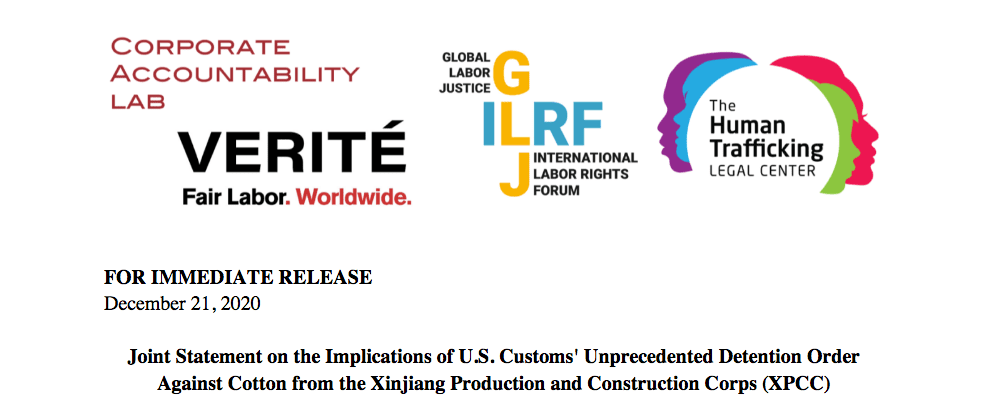
Joint Statement on the Implications of U.S. Customs’ Unprecedented Detention Order Against Cotton from Xinjiang
Less than four months after a coalition of domestic and international non-governmental organizations filed multiple petitions to U.S. Customs and Border Protection (CBP) to exclude Xinjiang cotton,on December 2, 2020 the agency issued a detention order called a Withhold Release Order (WRO), prohibiting the importation of cotton and cotton products from XPCC into the United States. CBP issued the order based on reasonable suspicion of prison labor and forced labor in cotton harvest and production in Xinjiang (‘Uyghur Region’). The WRO covers all products that are produced ‘wholly’ or ‘in part’ with cotton by the Chinese paramilitary conglomerate, including its affiliates and related entities.
Non-governmental organizations and unions have been drawing attention to forced labor in cotton harvest and processing in the Uyghur Region for years. Now, CBP is too. Recent enforcement actions, advisories, and detentions by CBP demonstrate increased scrutiny on forced labor in the Uyghur Region and on corporations that continue to source from the region. In the last fiscal year alone, CBP issued nine detention orders (or WROs) against entities and products from China over forced labor.
The scope of this WRO is truly unprecedented. Over 22 percent of the world’s cotton comes from China. XPCC accounts for almost 33% of all cotton grown in China. It is difficult to imagine how any good made with Chinese cotton is not affected by this enforcement action from CBP. It is also estimated that XPCC has over862,600 direct and indirect holdings across 147 countries. No doubt, the issuance of this WRO will present heightened legal and financial risks for companies that either have links to cotton suppliers in Xinjiang or receive finished goods containing this tainted cotton.
Read the full statement here.
